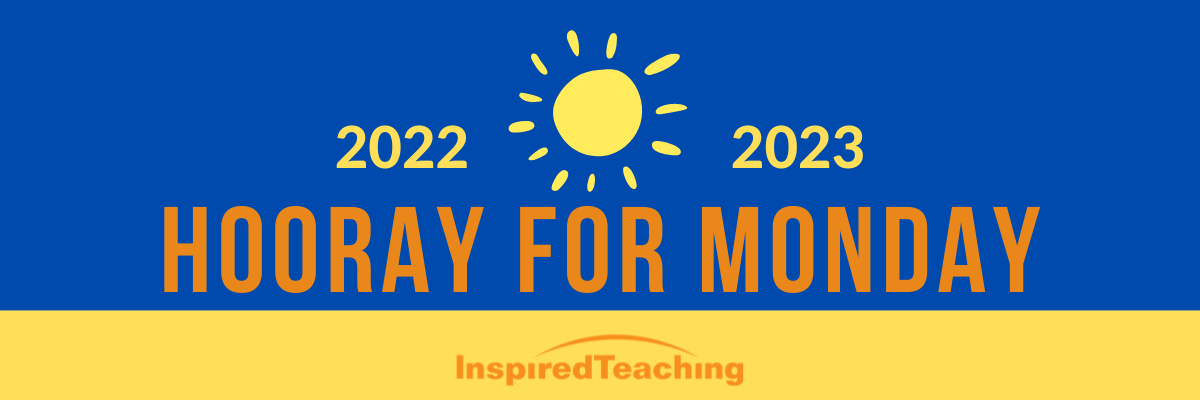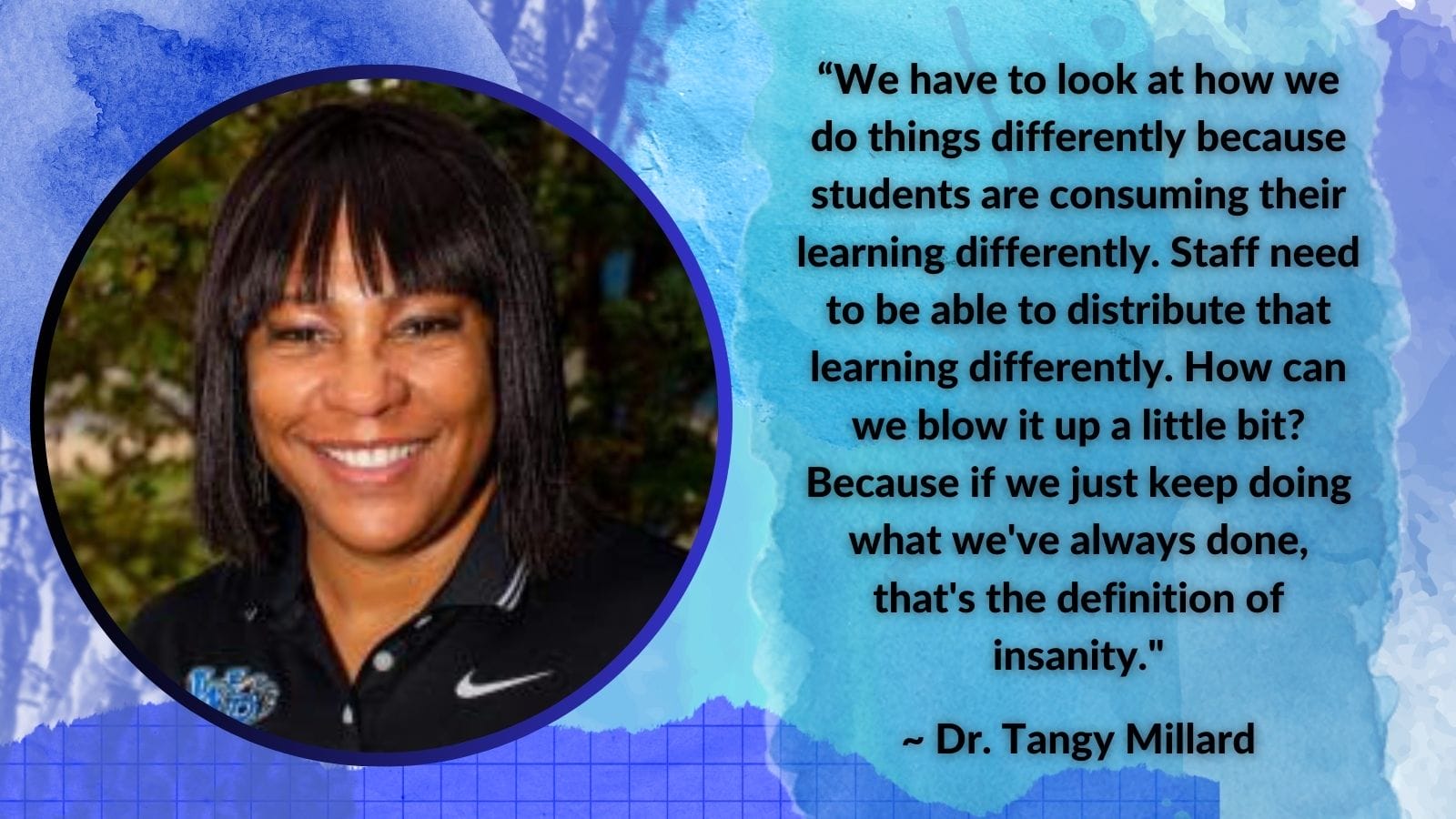May 29, 2023
By Aleta Margolis, Founder and President, Center for Inspired Teaching
Hooray for Monday is a weekly blog filled with questions, ideas, reflections, and actions we can all take to remodel the school experience for students.
You can now listen to Hooray for Monday on Spotify! Check out our podcast here.
As Teacher Appreciation Month winds to a close, I’m reminded of a LinkedIn Live interview we did early in May with Dr. Tangy Millard, principal at West Potomac High School, around the importance of school connectedness. In that discussion, Dr. Millard shared her appreciation for the challenges all of us in education face right now which exist alongside a strong desire to get back to normal. But maybe normal isn’t where we should be setting our sights.
Dr. Millard explained, “Our kids came out of the pandemic understanding that they are new and their world is new and that they have to function in a new way. So when we started to apply the old stuff to them, they started to let us know that’s not going to work and we’re going to need something else. The industrial school complex way of doing things, it’s over, it’s been over. COVID put an exclamation point behind that and said, we have to look at how we do things differently because students are consuming their learning differently. Staff need to be able to distribute that learning differently. How can we blow it up a little bit? Because if we just keep doing what we’ve always done, that’s the definition of insanity.”

Change takes time, and Dr. Millard’s examples of “blowing it up a little bit” illustrate that this is a community-wide effort. But step by step, change is possible.
- Gather data on student and staff well-being and look at it together. A district-wide SEL screener gave Dr. Millard and her staff insight into the fact students at West Potomac “very clearly showed a lower level of that sense of belonging.” And they knew they had to address that right away, “because if students don’t have that, it is very difficult to find the need to come into a building that they don’t feel that they belong to or to stay engaged in the school.”
- Listen to the children. Dr. Millard said they learned more about what students needed when they asked them more questions. “Student voice became a big piece of that sense of belonging. They felt like things were being done to them. That was compounded by the two previous years of COVID, when there was no control for them and no real way to determine or understand or make sense of their academic world because of the way things shifted so drastically.” With that information in hand, the school found new ways to ensure students are seen and heard.
- Look for structural ways to create more connections. The high school is large. It has 2,700 students and so Dr. Millard and her team devised a new advisory system to make it feel smaller. Starting in 9th grade students are assigned to an advisory group with an advisory teacher who they will continue to be with throughout their remaining years of school.
- Enlist the community to nurture wellness. West Potomac hosted two wellness days this year where the entire student body, faculty, and staff rotated through a series of fun and engaging activities that included everything from a petting zoo to pickleball and car washing. Community members outside the school donated supplies, time, and expertise to the events. Dr. Millard said, “the response from staff, students, and parents about that day blew us out of the water.” And a community-wide event like that communicates to families that mental health is as important as academics. “You can’t do reading and writing until that’s right, and students feel safe and they have intellectual safety. You have to build all of that before you can even get to reading, writing, and arithmetic.”

My wish for you as you head into June and soon summer break is that you find yourself the peers, and ideally the community, that will engage in “blowing it up a little bit” when you start all over again this fall. What learnings from this year will inform what you do next year? What will you change? What will you keep the same? But most importantly who will you blow it up with?
What We’re Curious About
Each week a member of the Inspired Teaching community shares something that’s piquing their curiosity. Maybe it will spark yours too!

ARE MVPS FAIR?
Emily, 5th Grader at Friends Community School, College Park, MD
I’m curious about if MVPs are fair. I am wondering this because: are they actually really fair to all the players on the team? Is it right to single out just one player as the most valuable player? Because if they were just playing against another team, would they actually be the best person?
Teacher Resources
Interesting, Important, Useful
In her interview, Dr. Millard spoke to really rethinking how and what students are learning in order to foster more connection. In this activity students are enlisted in that rethinking as they identify what’s driving their curiosity.
Yes. But… vs. Yes! And…
As teachers, embracing an improvisational mindset can help us think creatively about problems like the need for more belonging in our classrooms, and building this kind of thinking in our students can do the same for them. This activity is a good place to start.
What would make you look forward to coming to school?
As we near the end of this school year, think about what more you can learn from these experts in your classroom. This activity invites their imagination and just might give you insights into things you can try this fall.





